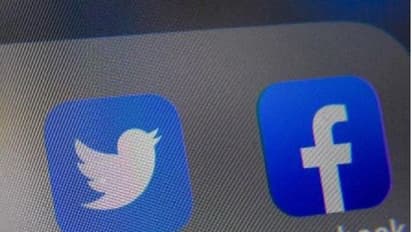Russia blocks Facebook, restricts Twitter; passes law on ‘fake news’

Synopsis
The bill, quickly rubber-stamped by both houses of the Kremlin-controlled parliament and signed by Putin, imposes prison sentences of up to 15 years for those spreading information that goes against the Russian government’s narrative on the war.
With President Vladimir Putin intensifying a crackdown on media outlets and individuals, Russia blocked Facebook and some other websites on Friday and passed a law that gave Moscow much stronger powers to crack down on independent journalism, prompting the BBC, Bloomberg and other foreign media to suspend reporting in the country.
He signed into law a bill that criminalizes the intentional spreading of what Moscow deems to be “fake” reports.
The moves against the social media giants follow blocks imposed on the US government-funded Voice of America and Radio Free Europe/Radio Liberty, German broadcaster Deutsche Welle, and Latvia-based website Meduza.
The bill, quickly rubber-stamped by both houses of the Kremlin-controlled parliament and signed by Putin, imposes prison sentences of up to 15 years for those spreading information that goes against the Russian government’s narrative on the war.
In response, multiple outlets said they would pause their work inside Russia to evaluate the situation. Among them, CNN said it would stop broadcasting in Russia while Bloomberg and the BBC said they would temporarily suspend the work of their journalists there.
Reacting to the development, Facebook attacked Russia’s block of the dominant social media network, saying the move will cut millions off from reliable information and a forum to share their views.
“Soon millions of ordinary Russians will find themselves cut off from reliable information... and silenced from speaking,” said Nick Clegg, vice president of global affairs at Facebook’s parent Meta as quoted by AFP.
Russia asserted that it had blocked Facebook over “discrimination” of Russian state media outlets, which have faced restrictions on various online platforms over Moscow’s invasion of Ukraine.
Since Moscow’s invasion of Ukraine last week, Russian authorities have stepped up pressure against independent media, though press freedoms in the country were already rapidly waning.
Moscow’s attack on Ukraine, the biggest on a European state since World War Two, has created over 1 million refugees, a barrage of sanctions and fears of a global economic hit and wider conflict in the West unthought-of for decades.
Fighting was raging in Ukraine as Russian troops besieged and bombarded cities in the second week of an invasion that has isolated Moscow, which says its attack is a “special operation” to capture individuals it regards as dangerous nationalists.
Check the Breaking News Today and Latest News from across India and around the world. Stay updated with the latest World News and global developments from politics to economy and current affairs. Get in-depth coverage of China News, Europe News, Pakistan News, and South Asia News, along with top headlines from the UK and US. Follow expert analysis, international trends, and breaking updates from around the globe. Download the Asianet News Official App from the Android Play Store and iPhone App Store for accurate and timely news updates anytime, anywhere.